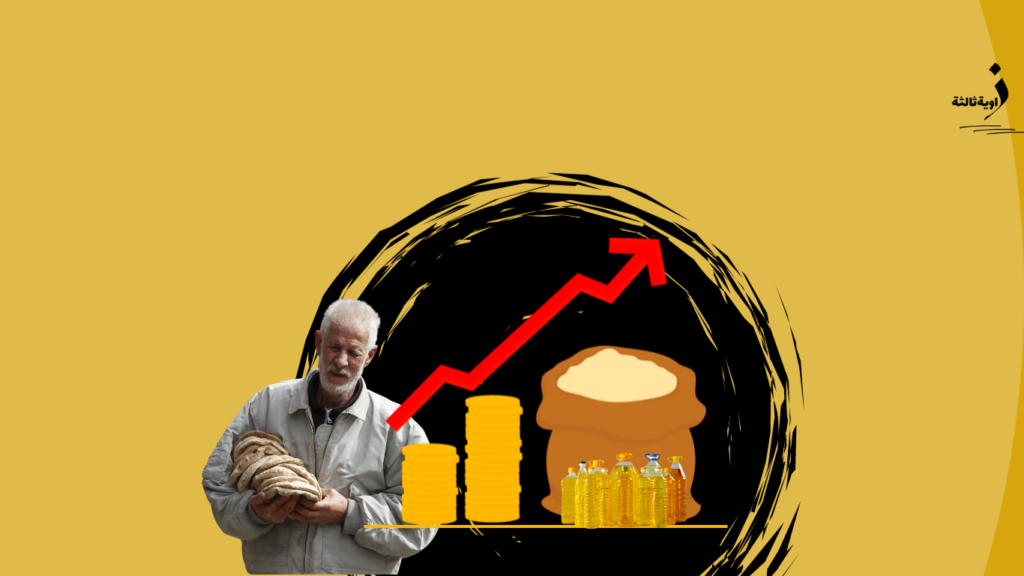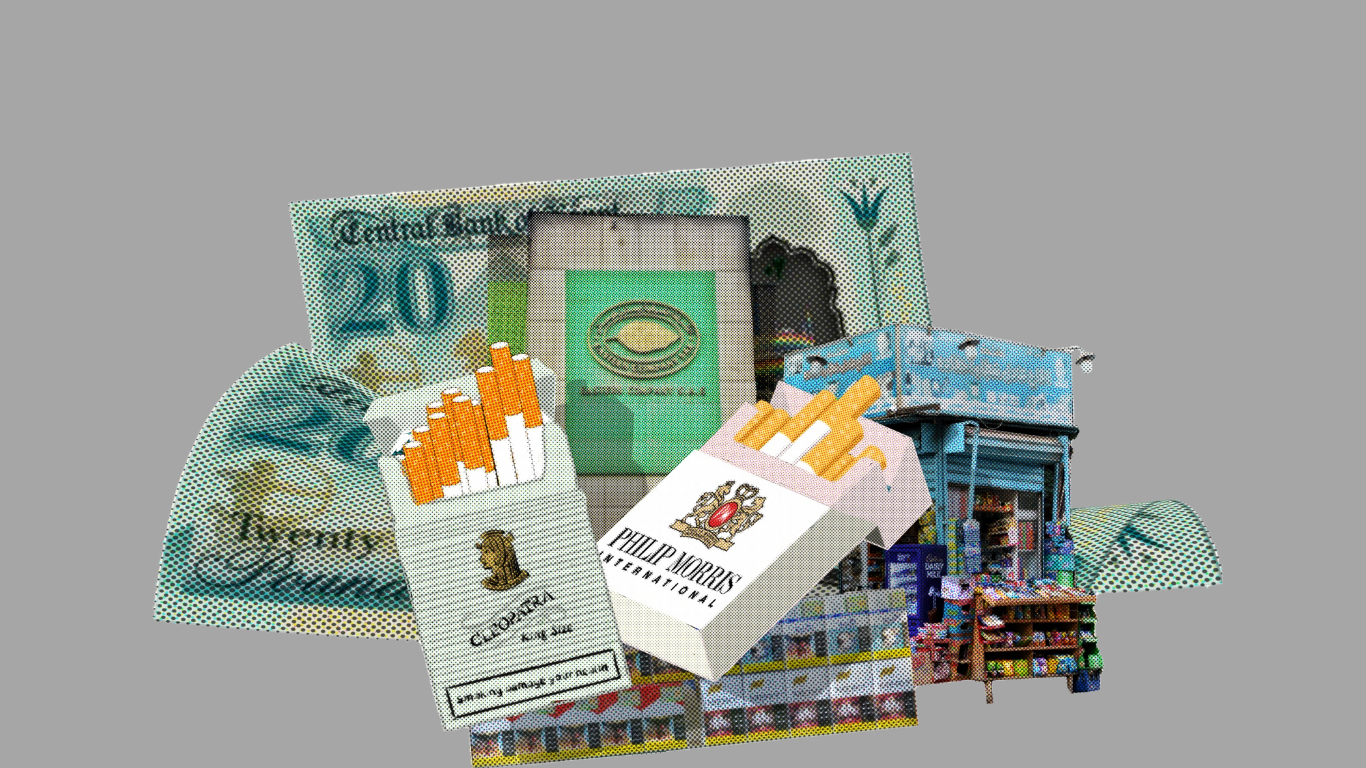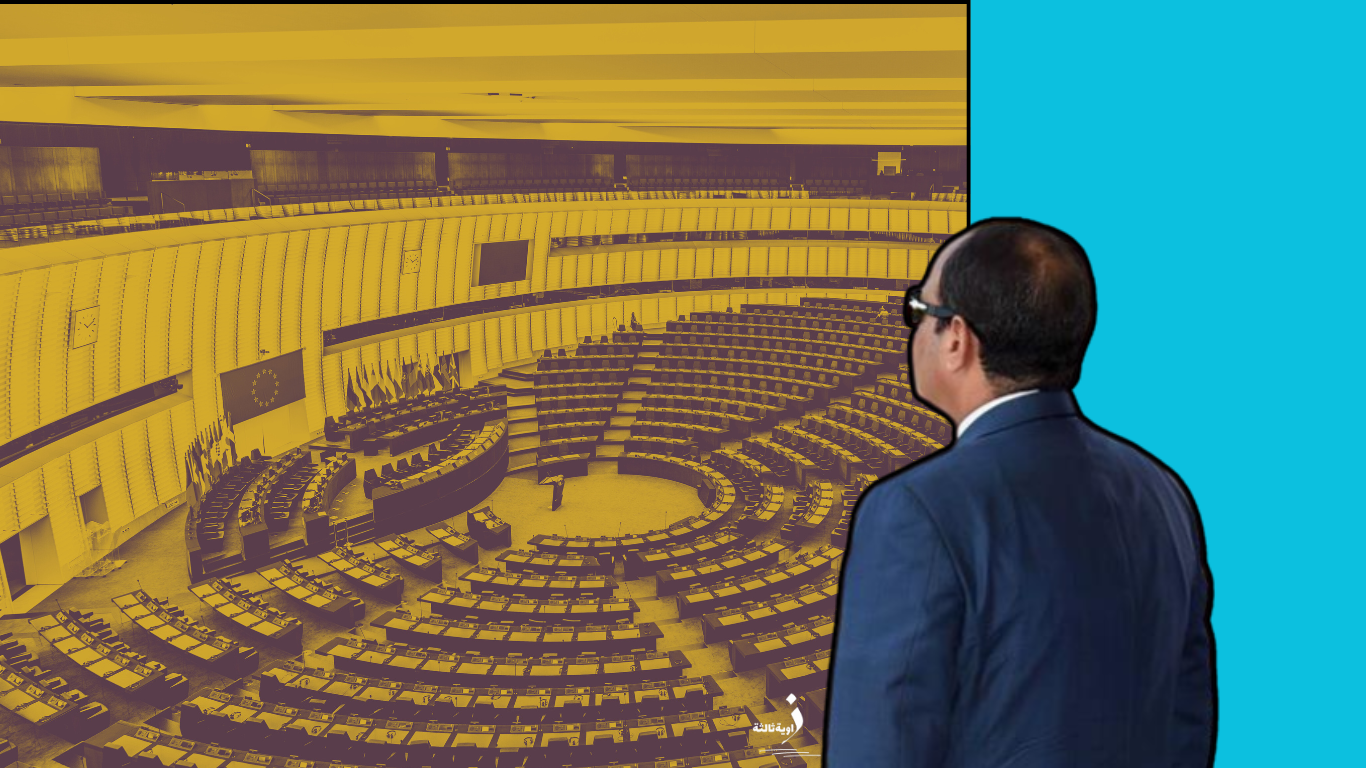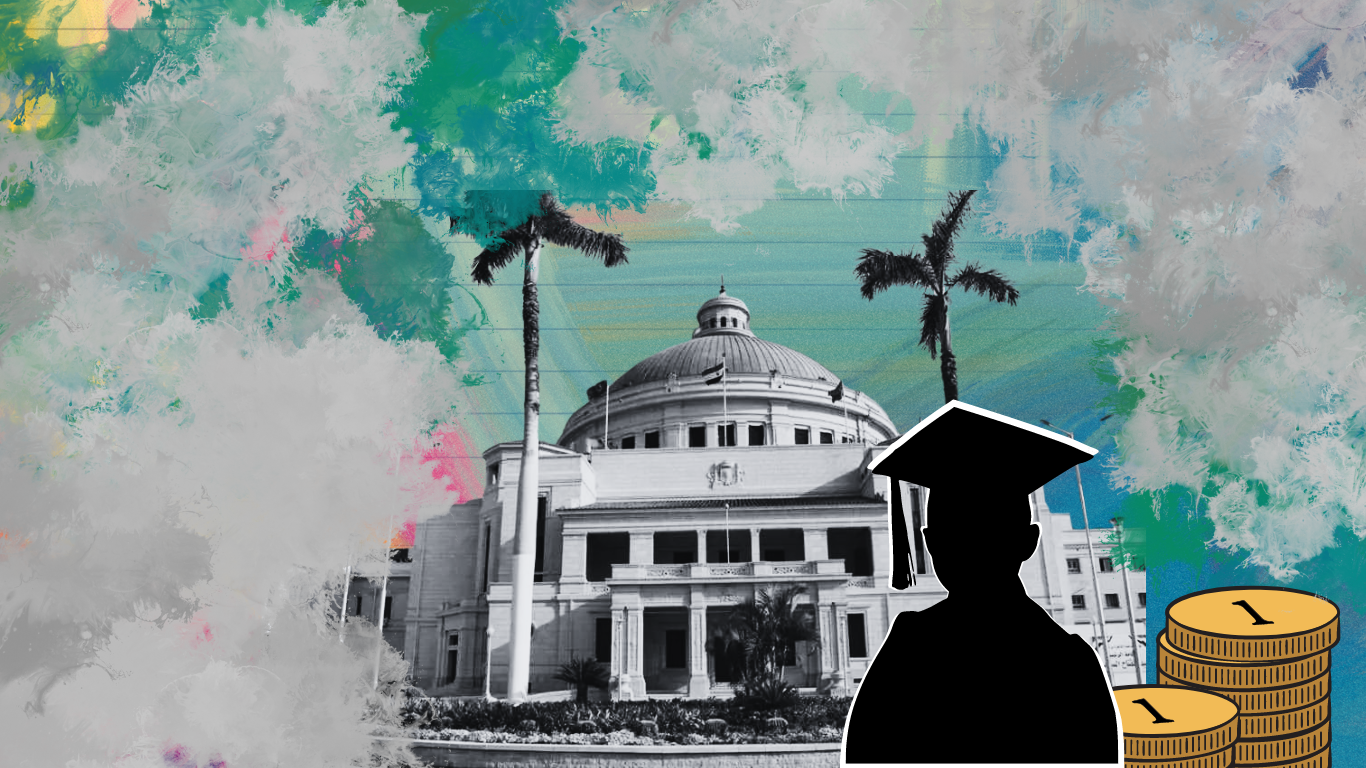The Egyptian government has taken a number of measures in the past few days to address the continuous rise in prices, attempting to regulate the markets. Seven essential commodities have been identified, and any monopolistic practices or hoarding of these items are strictly prohibited. A committee has been formed to monitor the production and supply levels of these commodities, including blended oil, packaged fava beans, rice, milk, sugar, pasta, and white cheese.
The decisions include obligating companies to clearly state the final selling price on products and instructing citizens to report any outlet selling goods in violation of the indicative prices. Companies are also required to issue sales invoices containing data specifying the type and quantity of the product, the factory selling price, and starting from March of the coming month, the maximum final selling price to consumers, inclusive of taxes and financial burdens, must be clearly indicated.
According to the decision, violators will be subject to penalties under Article 71 of the Consumer Protection Law, which was amended on January 3rd of the current year. The amendments state that violators will be punished with imprisonment for no less than one year, a fine of not less than 100,000 Egyptian pounds, and not exceeding 2 million Egyptian pounds, or the equivalent value of the goods related to the crime if greater. The penalty is doubled in case of repeated violations. The law specifies that if a person, who has previously been sentenced twice with imprisonment and a fine for returning to the violation, is proven to commit a new crime, the punishment will be imprisonment and a fine together, not less than 300,000 Egyptian pounds and not exceeding 5 million Egyptian pounds.
Egypt’s Government Measures and Support Policies
Since its establishment in the 1950s, the Arab Republic of Egypt has been keen on implementing laws and policies that allow successive governments to intervene in favor of the local consumer. Among these policies, the Price Control Law and the government support program for goods stand out. The aim is to provide essential consumer goods that low-income citizens cannot afford through a fund that covers the difference between the selling price and the cost of goods.
The support program has been a key focus for rulers between the eras of Gamal Abdel Nasser and Mohamed Hosni Mubarak. The socialist regime in the 1960s initiated a program supporting the prices of basic food items, intending to expand the scope of benefits to include all social classes and address population growth and urbanization. Following the setback in 1967, the “Nasser” regime sought to counter the price hike by expanding the implementation of the “ration cards” system for a limited number of goods, including essential items such as wheat, sugar, rice, cooking oil, soap, kerosene, and some cotton products. However, the initial launch of ration cards was in 1945 when King Farouk issued a decree granting the Minister of Supply the authority to impose restrictions on the production, trade, and consumption of basic goods.
President Sadat worked to expand the ration support program, increasing its value to 20 million pounds in 1970, covering 18 items, including beans, lentils, fish, chicken, and frozen meat. During Mubarak’s era, the allocation of basic goods for a four-person family was adjusted to include eight kilograms of sugar, rice, and blended oil, as well as a package of pasta. In Sisi’s regime, an increase of 50% in subsidized goods was implemented, allowing citizens to choose from 20 items, supporting goods for a family of four.
King Farouk issued a decree for the Compulsory Pricing and Profit Determination Law in 1950, specified as Law 163 of 1950. The law established a pricing committee in each province, chaired by the governor, responsible for monitoring prices and setting mandatory prices that all sellers and distributors must adhere to. The law highlighted essential goods subject to pricing, including grains, rice, flour, bread, sugar, salt, oils, medicines, and meat.
During the era of President Sadat, a new amendment to the law was issued, numbered 108 of 1980, allowing the government to issue administrative closure decisions for a period not exceeding 6 months. Penalties were increased to imprisonment for a minimum of one year and a maximum of five years, with fines ranging from a minimum of three hundred pounds to a maximum of one thousand pounds. In the second year of President Mubarak’s rule, Law No. 128 of 1982 was amended while retaining the sanctions.
The prospect of reintroducing the law in the Egyptian Parliament in 2017 sparked widespread controversy and rejection from officials in commercial chambers. Parliament members discussed the draft law “Profit Percentage Determination” in an attempt to regulate the market and determine profit margins based on the commodity’s price on entry into the market and the exchange rate on that day. However, the Supply Ministry exited the scene in 2022, denying the return of compulsory pricing under the influence of market economics and supply and demand laws. Nevertheless, it warned against setting a high profit margin that would pressure consumers.
The official gazette published Cabinet Decision No. 66 of 2022, specifying the selling price of a kilogram of white rice in the markets, with the packaged rice not exceeding 15 pounds and the bulk price at 12 pounds. Violators of the decision face fines ranging from a minimum of 100,000 pounds to a maximum of 5 million pounds. This follows the Price Reduction Initiative in November, which introduced outlets offering discounted prices.
Reduction Initiative in November, which introduced outlets offering discounted prices.
Market Control Mechanisms in Egypt
Various official entities in Egypt are responsible for regulating and monitoring markets, including the Competition Protection Agency under the Prime Minister’s office, the Consumer Protection Agency under the Ministry of Supply and Internal Trade, the Anti-Subsidy, Dumping, and Prevention Agency under the Ministry of Trade and Industry, and the General Administration of Supply and Trade Police under the Ministry of Interior.
Official data indicates that regulatory efforts led to the issuance of 500,830 violation reports in 2023 by regulatory groups within the General Diwan, as well as the Directorates of Supply and Internal Trade. The Consumer Protection Agency contributed to this with 35,771 reports on various violations.
Since President Abdel Fattah El-Sisi assumed office in 2014, the Egyptian government has emphasized market freedom and the principles of supply and demand, rejecting the return of mandatory pricing systems. The economic reform program aimed to reduce support on ration cards and goods, following the criteria of the World Bank.
Does the Free Market Need Direct Government Intervention?
International economic expert and head of The Egyptian Center for Economic Studies (ECES), Rashad Abdo, states to “Zawia3” that the government believes in the lack of price control in the capitalist system, assuming the market is free and consumers have multiple choices. However, the reality in Egypt differs, and Abdo notes that the role of supply inspectors has diminished, leaving no effective regulatory body to control prices in a supposedly free market. Consumers find themselves forced to purchase goods at prevailing prices, even if it exceeds their financial capabilities.
In the same context, Marwa El-Shafei, an economic expert, tells “Zawia3” that the issue is no longer associated with the idea of determining the entity responsible for monitoring and controlling markets. She adds, “I am concerned about the performance indicators of those entities, monitoring their work indicators and their impact.” However, the outcome ultimately reveals a decline in performance, the existence of artificially created crises, and exploitation by traders. Another dimension is related to inflation levels, and it can be said that there are no precise numbers or percentages for the inflation rate in Egypt. Central Bank of Egypt data indicates stability in the core inflation rate in the country, reaching 35.86% on an annual basis by the end of last November.
And she adds: “We do not have enough foreign currency reserves to meet our commitments, and this is a significant problem because it leads to a continuous rise in the prices of production inputs. To complete the scene, it is essential to mention the impact of international crises such as the Ukrainian war or the COVID-19 crisis, which may not have a direct impact but has highlighted the need for the Egyptian economy to increase production and diversify foreign sources.”
El-Shafei points out, “There is no stability in prices, unfortunately. In the past year, prices have multiplied between three to four times, impacting citizens who receive the same wages, with a slight increase that does not align with the rapidly rising inflation rates.” She adds, “It is natural for the government, through its tools, whether through government spending or taxes, to assist the production sectors to prevent them from stumbling and closing. Unfortunately, there are factories that have already closed, indicating a significant problem related to production. This leads us to question: Are we going to rely more on imports, or are we working to increase production rates?”
Two Official Monitoring Entities
Marwa Lashin, the economic expert, tells “Zawia Thalitha” that there are two official entities responsible for monitoring markets, namely the Ministry of Supply and Supply Investigations. Health inspectors, specializing in monitoring factories selling food products, accompany them, taking samples to ensure compliance with health conditions. She points out that in the absence of mandatory pricing, it is challenging for the government to monitor prices. However, mechanisms must be available to achieve balance. When the ministry senses a price increase in the market, it begins to introduce some products, such as pasta, dairy products, oils, and legumes.
She explains: There are civil entities working to monitor commodity prices in the markets, such as the Consumer Protection and Quality Association, which receives complaints from citizens about goods that do not comply with specifications. It also receives complaints about monopolies, but it does not have the mechanisms to confront this monopoly. When the association receives complaints, it investigates them, determines their impact on consumers, and if there is actual harm, these complaints are referred to the public prosecutor, who makes a decision in this matter. The Consumer Protection Agency also receives many complaints from citizens against various sectors, mostly revolving around random factories, poor products, and manufacturing defects in some goods. According to a study by the Federation of Industries in 2017, the number of random or illegal factories reached about 40,000 factories.
She sees that one solution for controlling and monitoring prices is to use the tools possessed by the state for competition, namely consumer complexes. According to the annual statistics of the Ministry of Supply for the past year, the state owns 8214 outlets, through which it can control the quantities of goods in the markets and then control their prices in favor of the consumer.
She adds that product pricing is determined according to supply and demand forces related to the quantities available in the market, in addition to the demand for it. Therefore, one solution to control commodity prices in favor of the consumer is to increase supply and production to cover any potential shortfall due to global events. Also, there are products whose official prices are determined by the state or producing companies, such as essential strategic commodities like sugar, flour, and legumes, and agricultural products such as vegetables and fruits determined by the fruit and vegetable exchanges, as well as fish, etc., and their prices are monitored in the markets through the Ministry of Supply.
On the other hand, Mohamed Sanbal, an employee at the Ministry of Health, points out that citizens make every effort to access goods sold at lower prices to bridge the gap. This is only available in exhibitions dedicated to the armed forces and the security apparatus under the Ministry of Interior, where some goods can be obtained at prices lower than the market price, including sugar, rice, pasta, legumes, and some canned goods. He adds: “Unfortunately, these products are cheaper but of lower quality than their counterparts in grocery stores and regular markets. However, in general, there is a demand for any product at a lower price when available.”
Fatma Mohamed, a homemaker, explains that she suffers the most from the continuous weekly price hikes. No commodity stabilizes for one month, and that’s why they always look for alternative outlets to get goods at a lower price, which are only available in the complexes of the armed forces and the police, where some goods, especially meat and sugar, can be found at discounted prices. As for other goods, they are sold at the same prices or extremely low prices, but most of them are of poor quality. She gives an example of cooking oil, which is sold in containers at a seemingly lower price, but in reality, these containers contain lower-quality oils that splatter when used, forcing the consumer to buy the good quality oils regardless of the price.
Meanwhile, Mahmoud Al-Asqalani, the head of the Citizens Against Inflation Association, confirms the existence of market control but not at the required level, as the total number of supply inspectors in Egypt, all of whom have judicial control, is less than a thousand inspectors. Some of them are retired in each period.
Al-Asqalani adds: “We suggested in the Citizens Against Inflation Association to utilize graduates who have completed military service and public service, receiving a monthly salary similar to conscripts, to work as supply inspectors without judicial control, monitoring markets and observing prices. They can be called ‘Market Inspectors.’ He indicates that implementing this proposal allows the state to impose more comprehensive control over markets and price movements in various provinces and ensure the implementation of the Prime Minister’s decisions by writing the price on the products.











